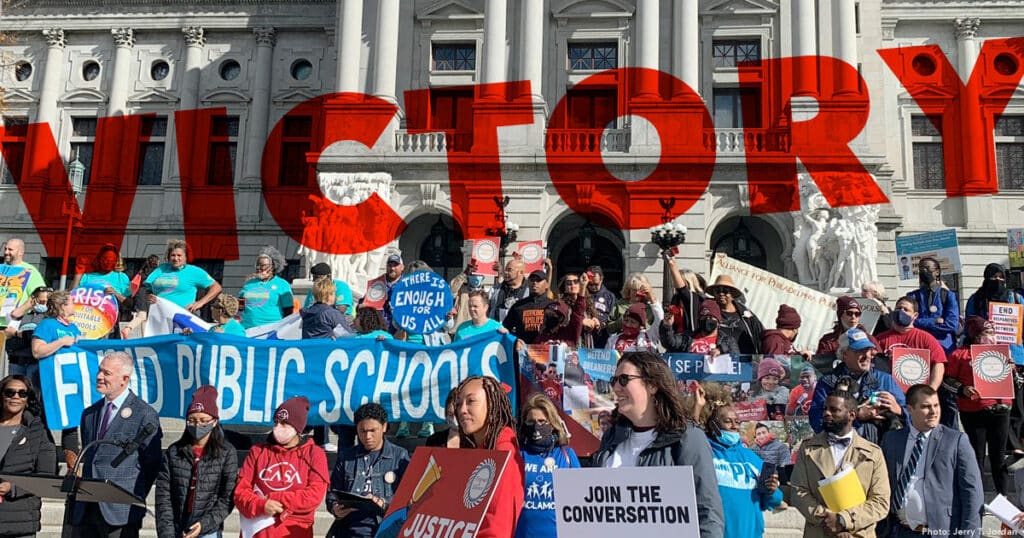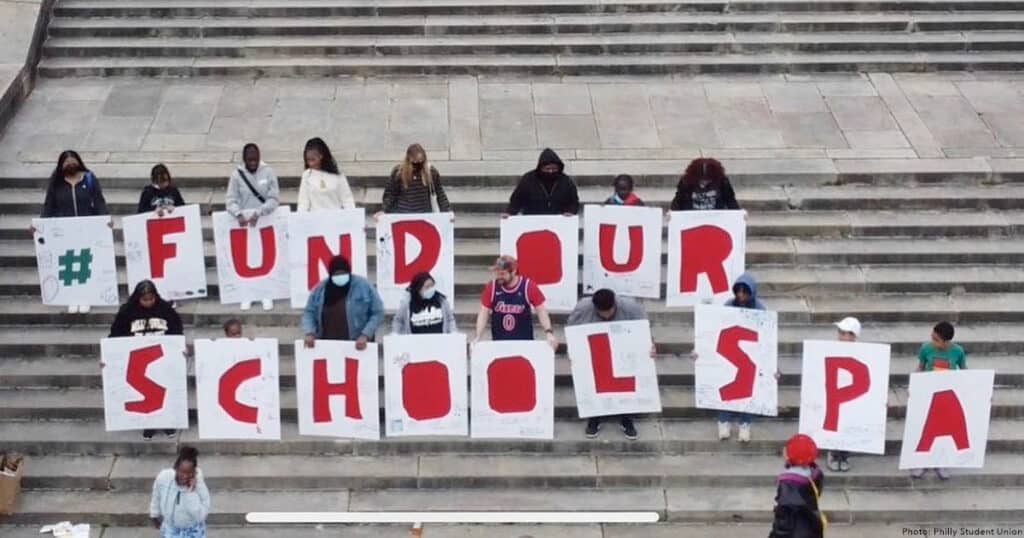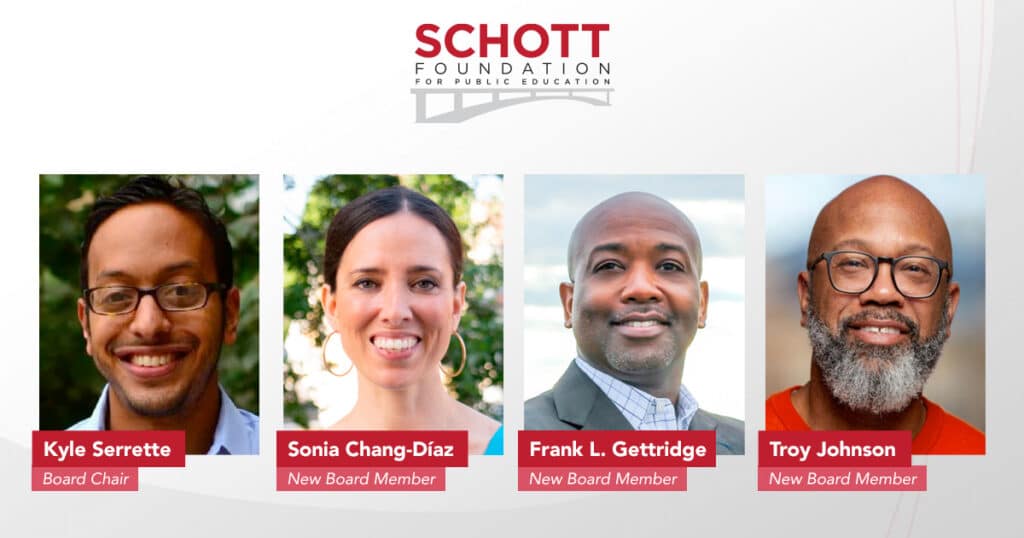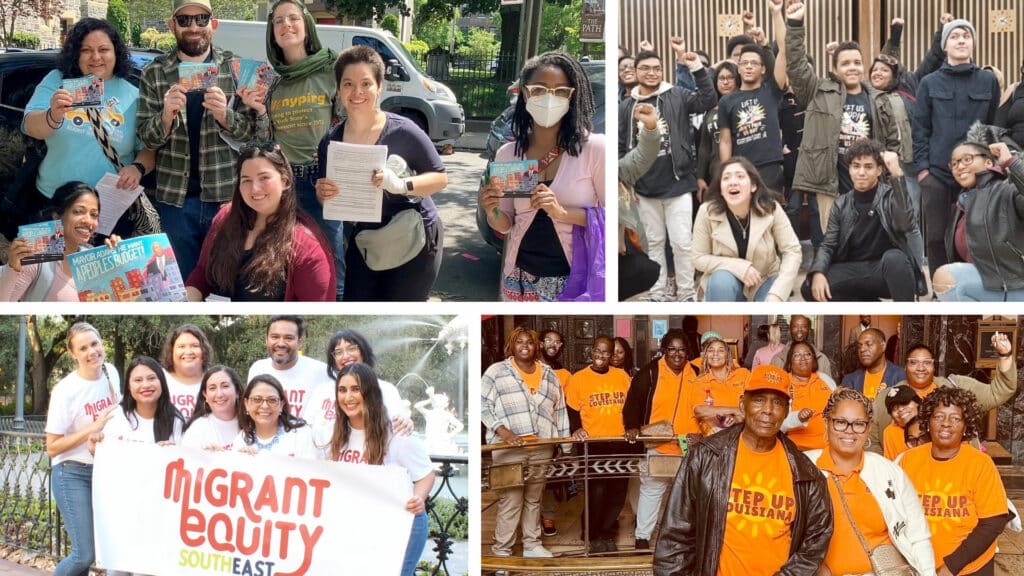Blog
Historic Win for School Funding in Pennsylvania

The Pennsylvania Supreme Court issued a ruling on Tuesday that’s been years in the making. The Court affirmed what communities have long known: the funding model Pennsylvania uses is fundamentally — and unconstitutionally — unfair. This decision, if implemented by the state, will improve the life of every student across the commonwealth.
As Judge Renée Cohn Jubelirer wrote in the ruling:
Students who reside in school districts with low property values and incomes are deprived of the same opportunities and resources as students who reside in school districts with high property values and incomes.
As we wrote in 2021, the education funding system in Pennsylvania is unfair both in collection and distribution:
- It’s unfair in the collection because of its heavy reliance on local property taxes: not only does it mean that wealthier — and usually whiter — districts can more easily afford to raise funds for schools, but lower-income districts are forced to raise property taxes much higher to even begin to approach the kind of funding students get elsewhere.
- It’s unfair in disbursement because lower-income districts end up spending far less per pupil while state lawmakers refuse to properly close the spending gap with statewide funds.
This week’s ruling orders the legislature to fix this funding system to make it meet constitutional muster.
The Multi-stakeholder Model Works
Pennsylvania’s neighbors New York and New Jersey have had their own successful education funding lawsuits — CFE and Abbott, respectively — that saw a real transformation in their public schools for the better. But all three of these legal victories were rooted not just in the court room, but in the classroom, neighborhood, and state capitols.
Grassroots community advocates, led by parents, youth, and educators in predominantly Black and Brown neighborhoods (which are almost universally the most underserved and underfunded schools and districts) spearheaded an approach that uses every lever available to move state institutions closer to equity and justice. This is central to Schott’s theory of change: with this approach, philanthropy can invest millions to result in billions for public school children.
A myriad of individuals and organizations brought their suit against Pennsylvania starting in 2014, including families, rural schools, and six school districts. The suit, filed by Education Law Center of PA, the Public Interest Law Center and the law firm O’Melveny, had been building momentum for almost a decade. Several funders, like the William Penn Foundation, have shown real commitment in providing resources for this long-term strategy.
What’s Next?
As their neighbors in New York and New Jersey can attest from lived experience, winning the battle in court is in many ways just a beginning. Next up for advocates is making sure the legislature crafts, and the governor signs, a new funding formula that equitably supports every public school. And even once that formula is established, the legislature will require pressure to fully allocate the resources the formula demands.
For now, however, it’s worth taking a moment to celebrate how far the movement has come.
The Education Law Center and Public Interest Law Center write:
Today’s decision declaring Pennsylvania’s school funding system unconstitutional is a historic victory for Pennsylvania’s public school children. It will change the future for millions of families, so that children are no longer denied the education they deserve. The court recognized that our schools require adequate funding to meet our constitution’s mandate.
It’s time for our state legislature to fund public schools in every corner of Pennsylvania so all students, whether or not they live in a wealthy community, can receive the quality public education guaranteed in our state constitution.
The PA Schools Work campaign writes:
As the PA Schools Work campaign has been saying for years, too many children across the state are struggling because their schools do not have the local resources necessary to help students reach their full potential. This ruling is a repudiation of a bare-bones system of public education that opponents of this lawsuit defended in court during the trial. Now, as ordered by the court, the state legislature has no choice but to fix the state’s broken, unjust funding system. We look forward to working with them to achieve that historic goal.



